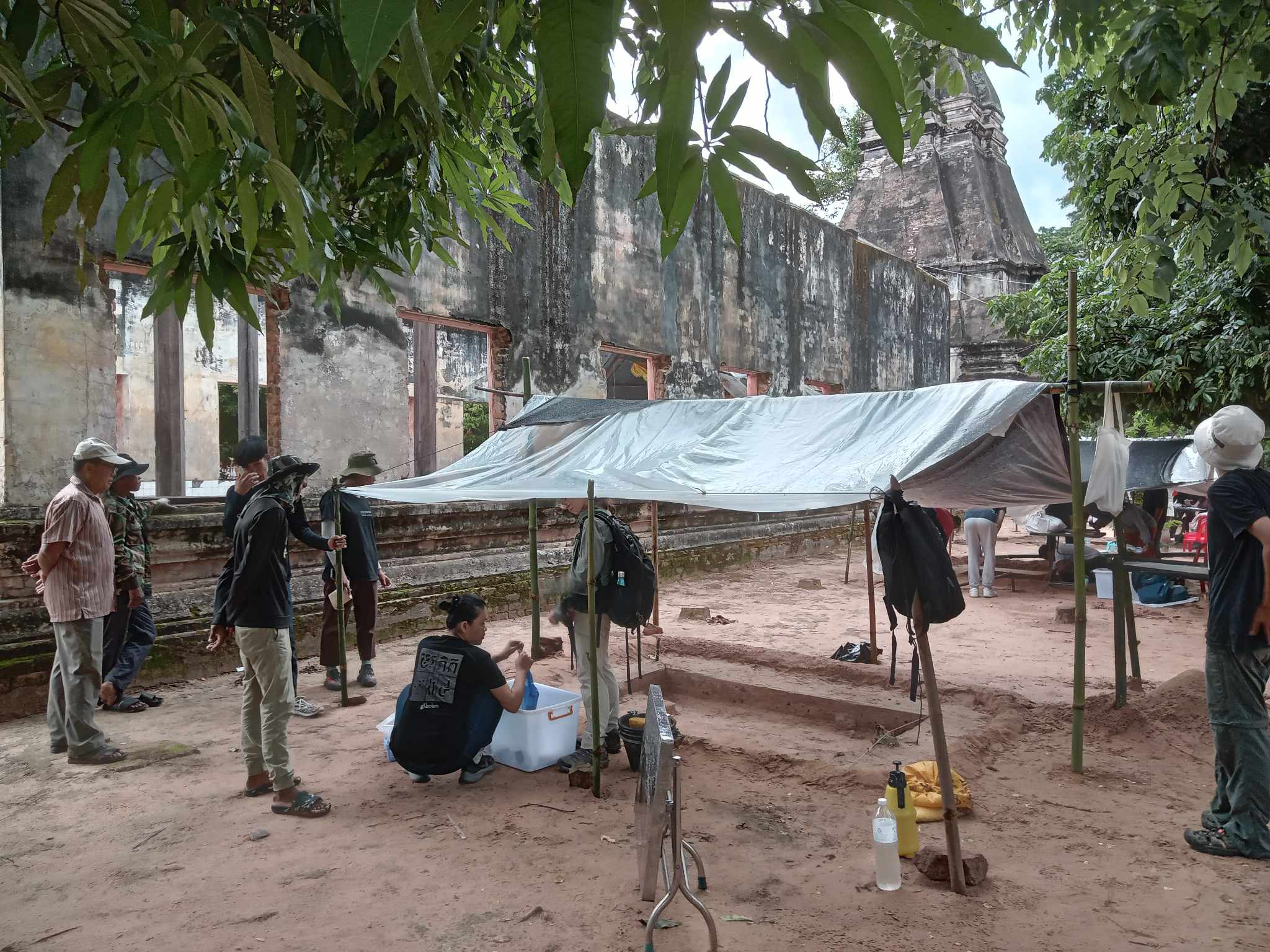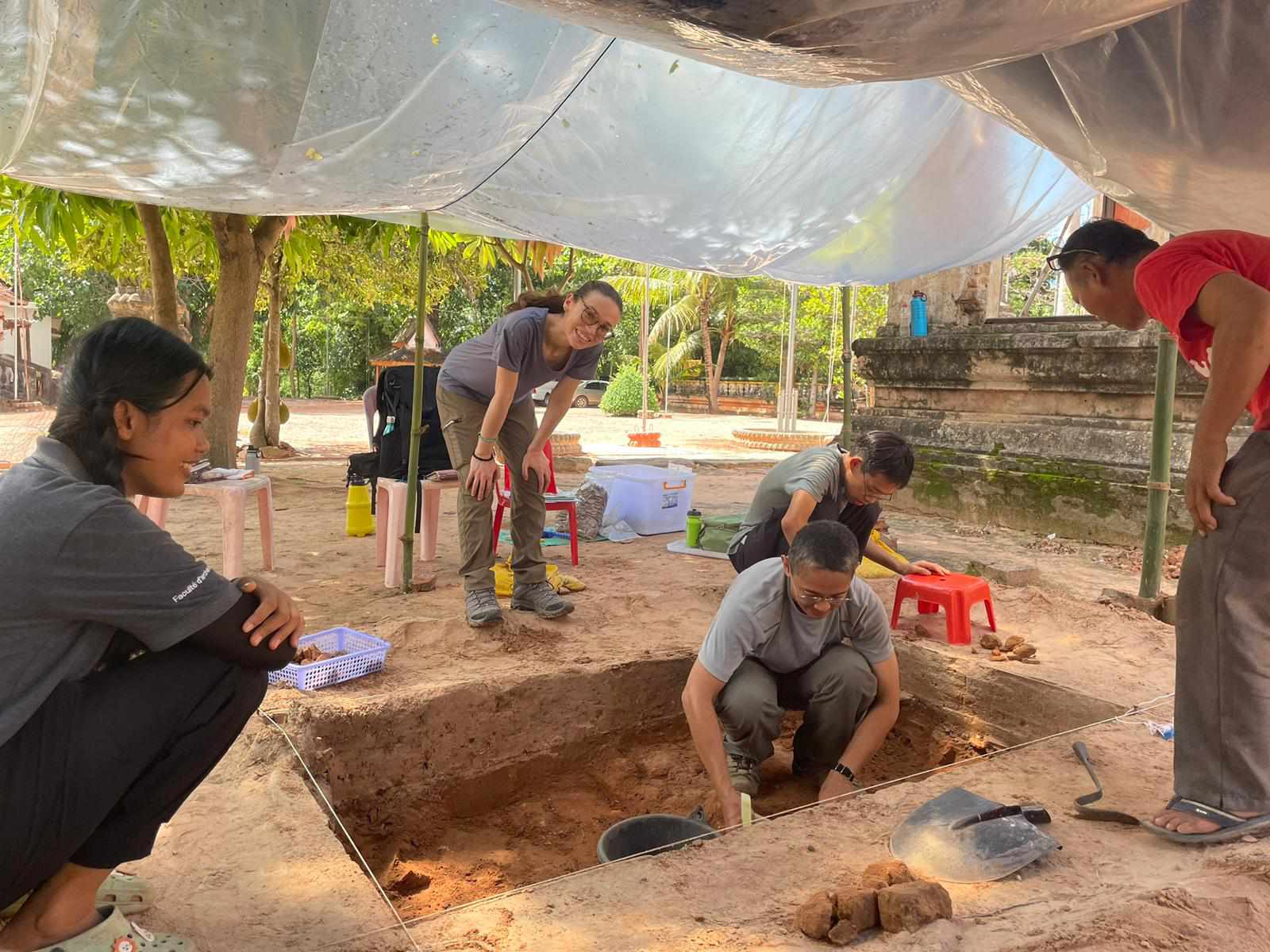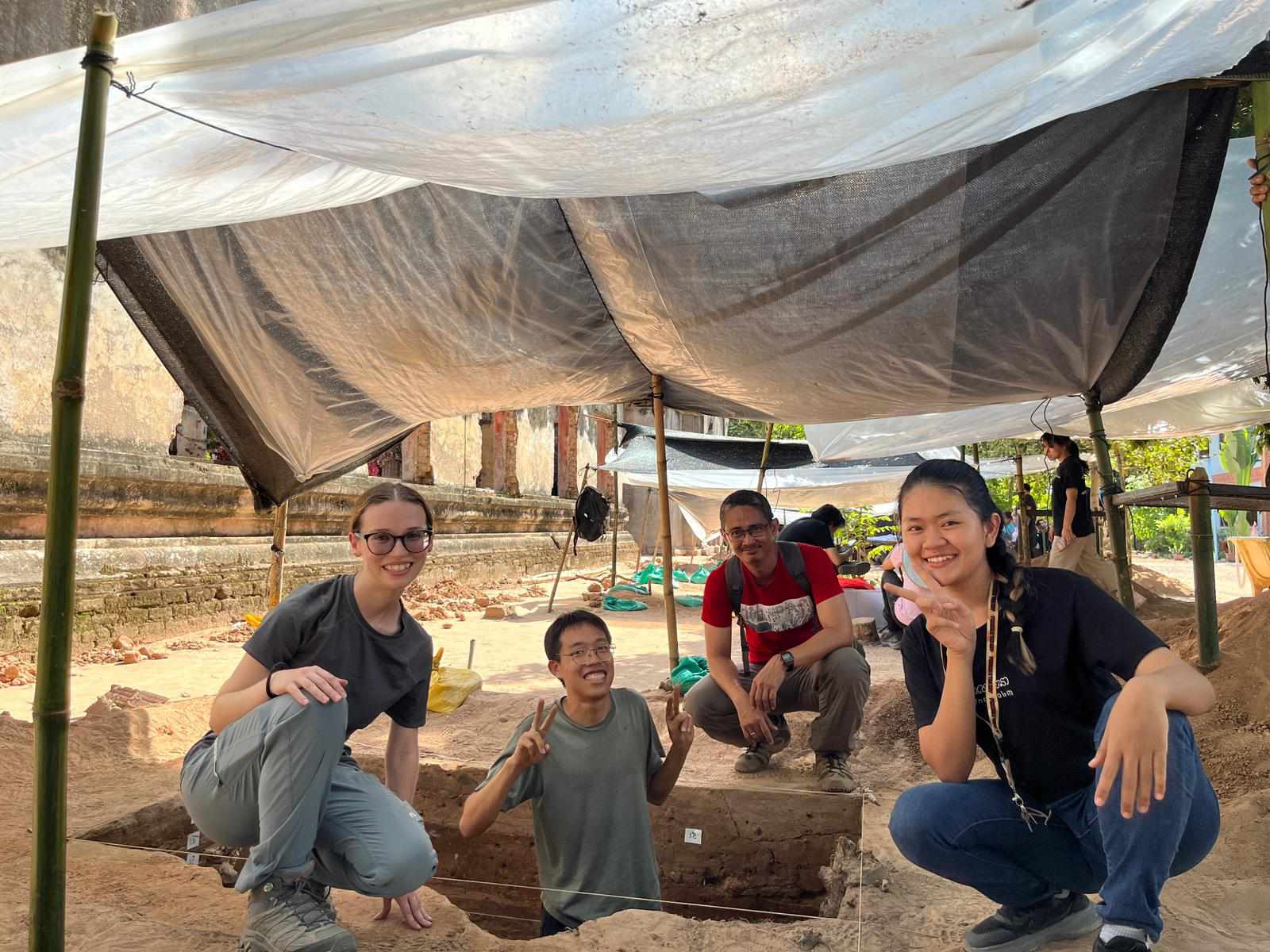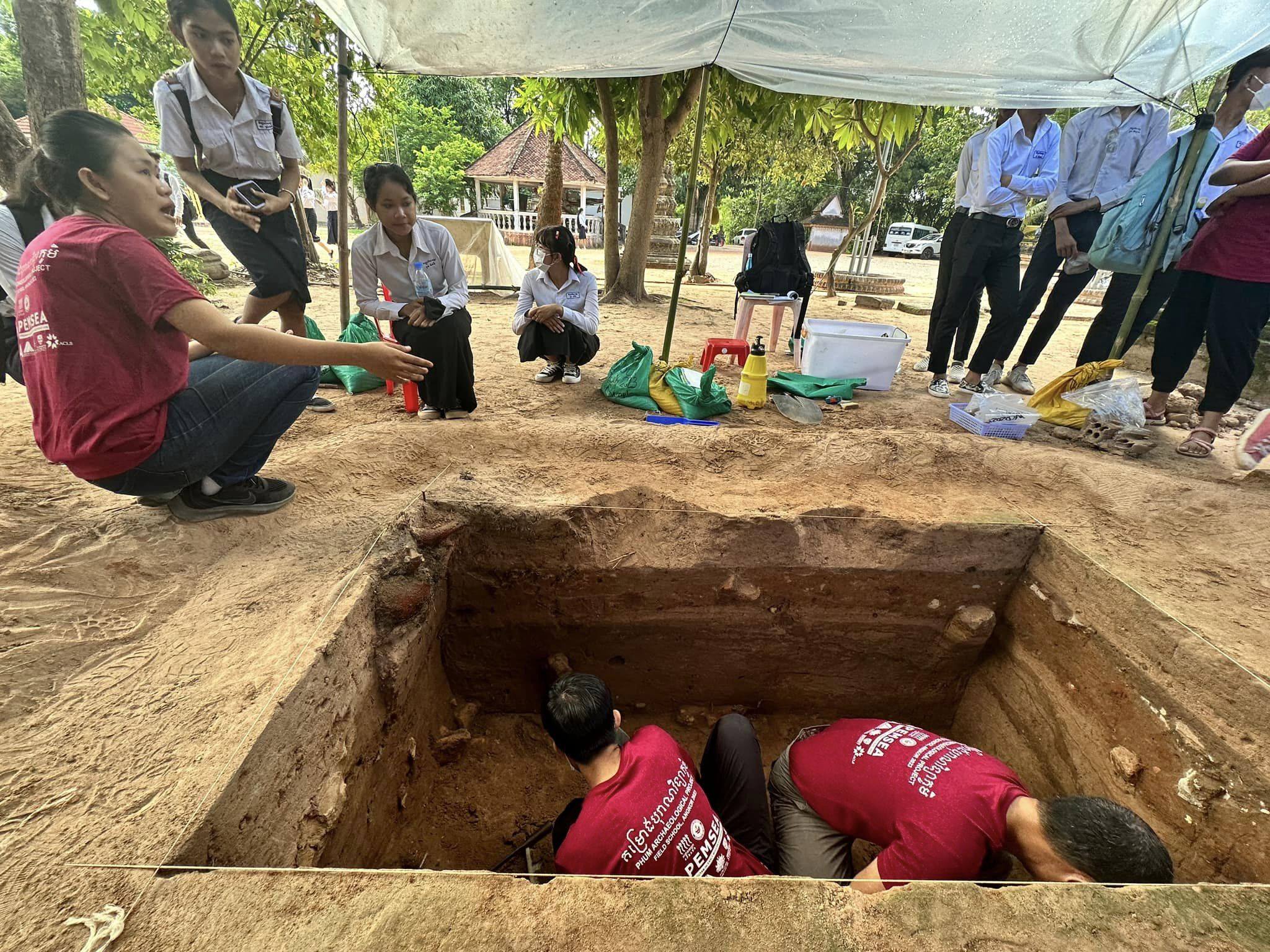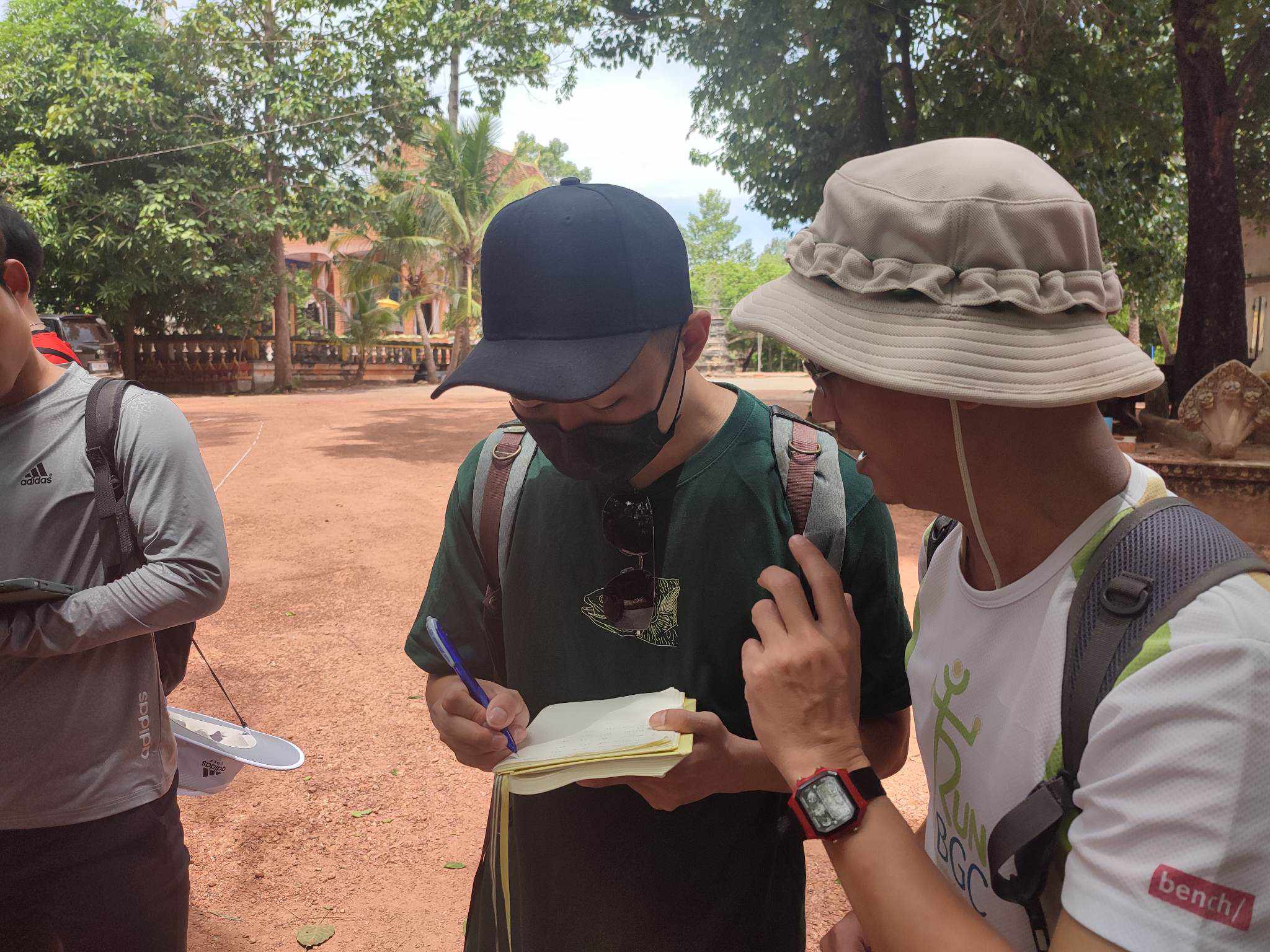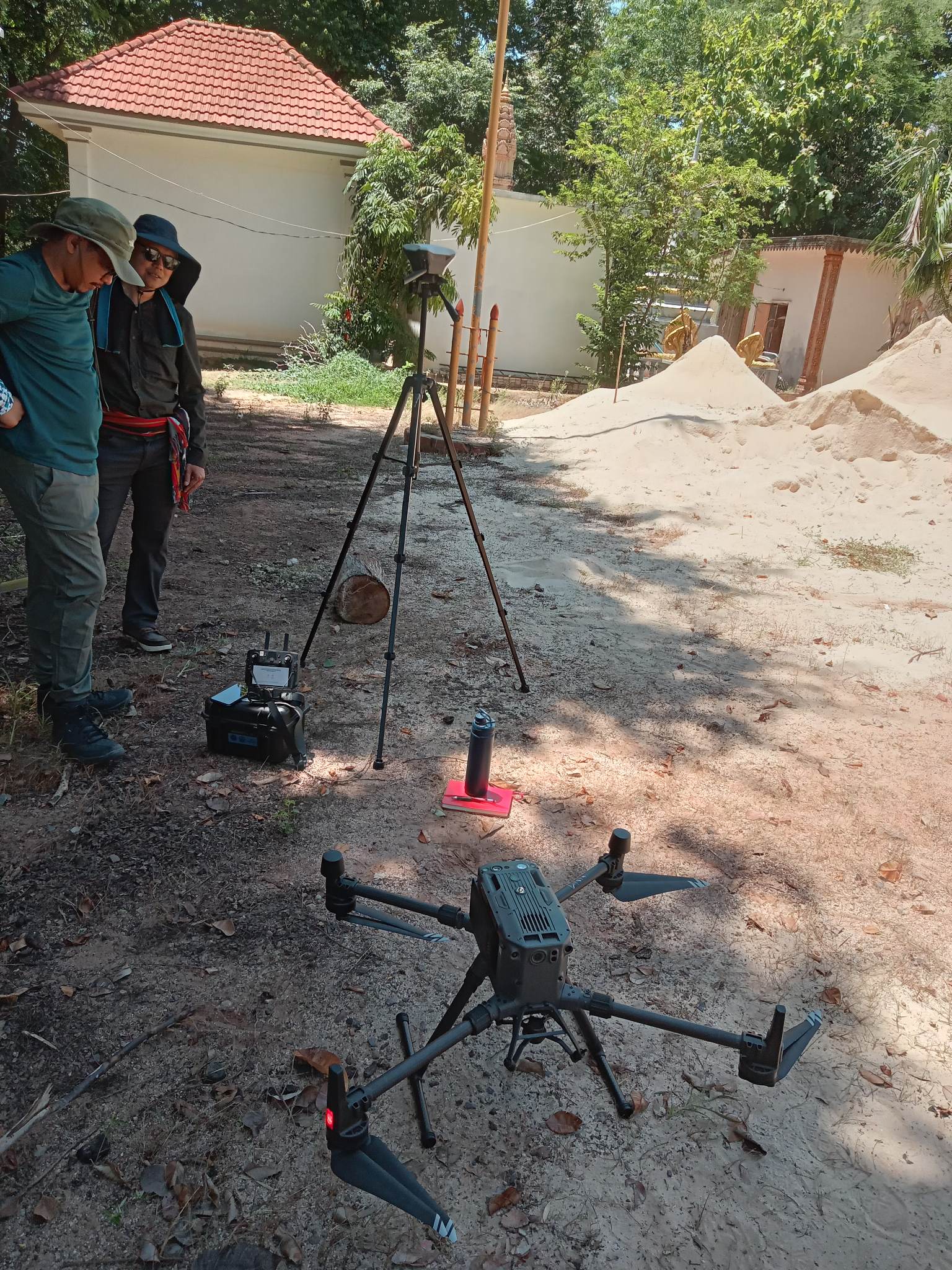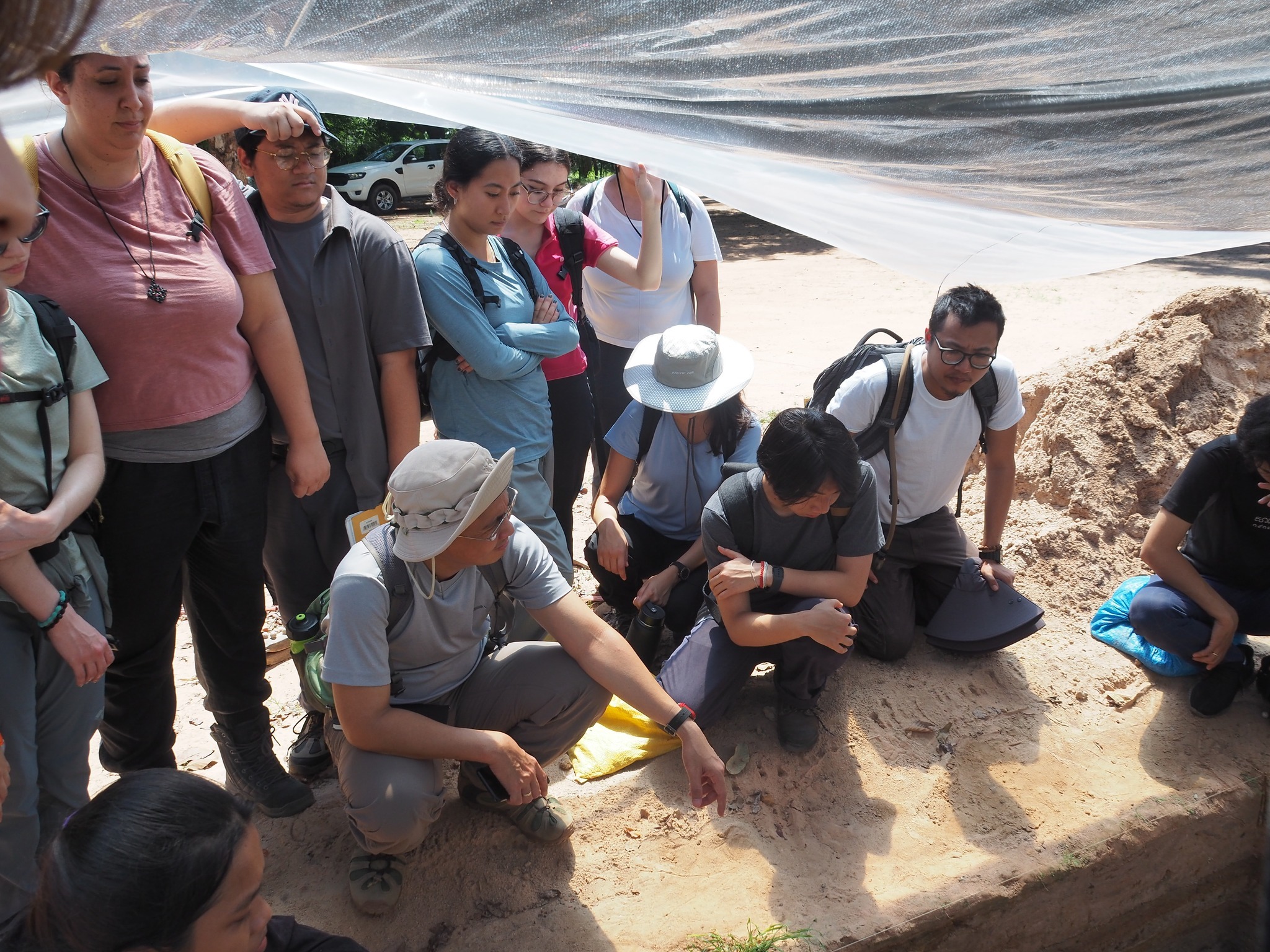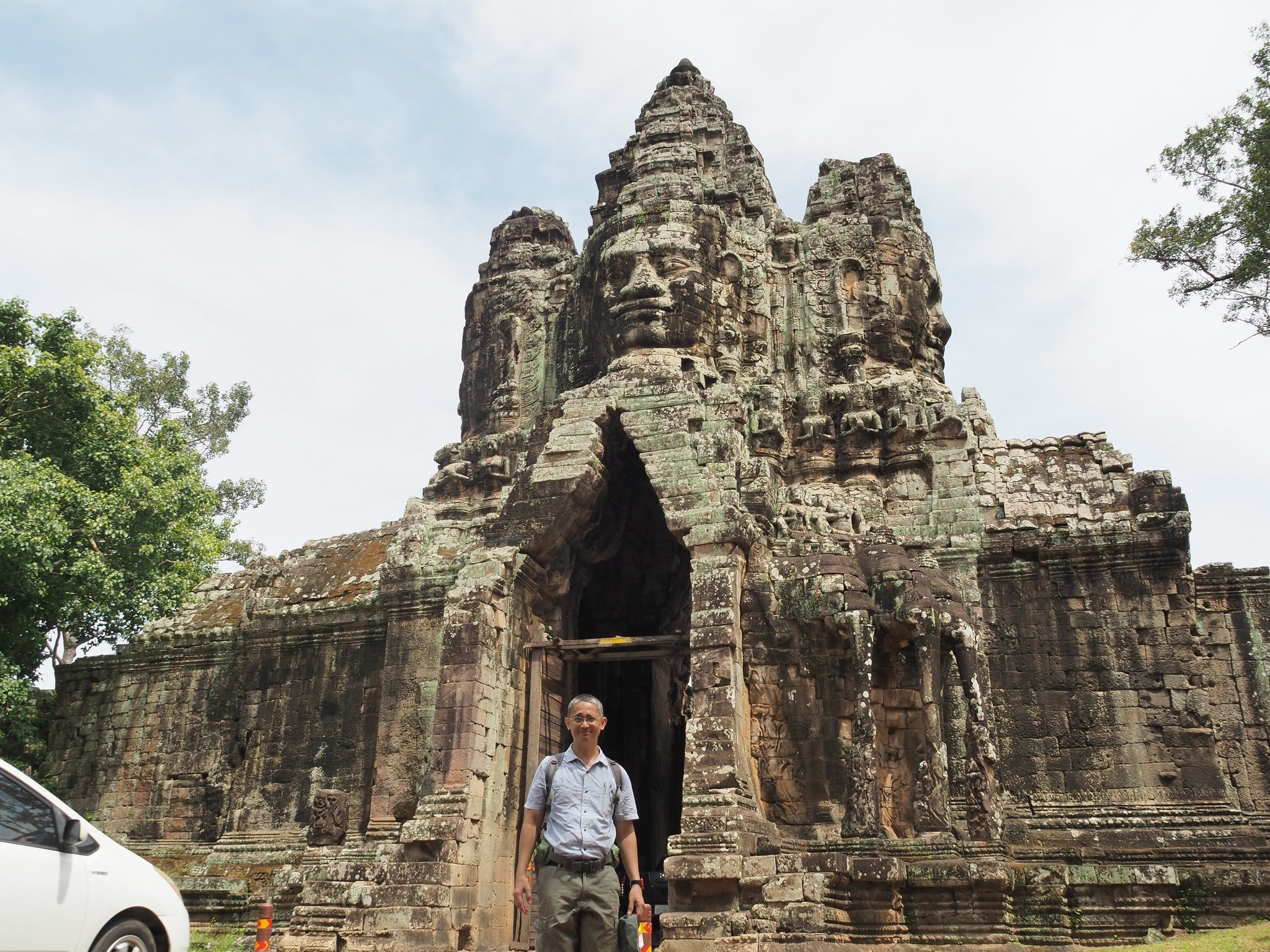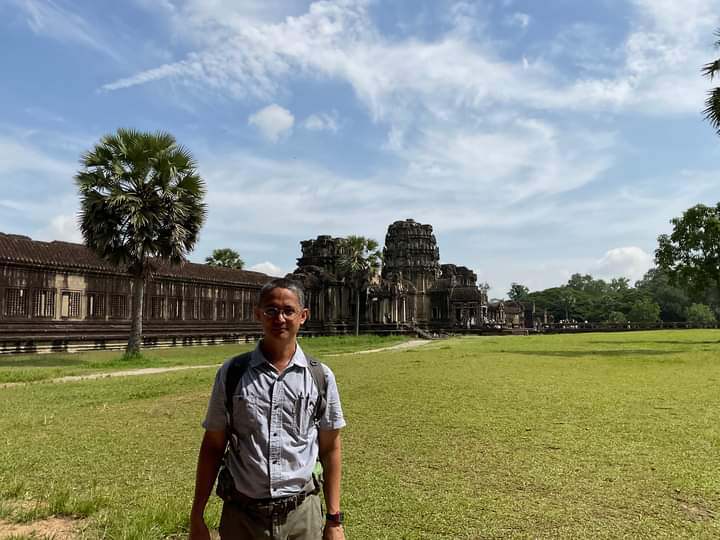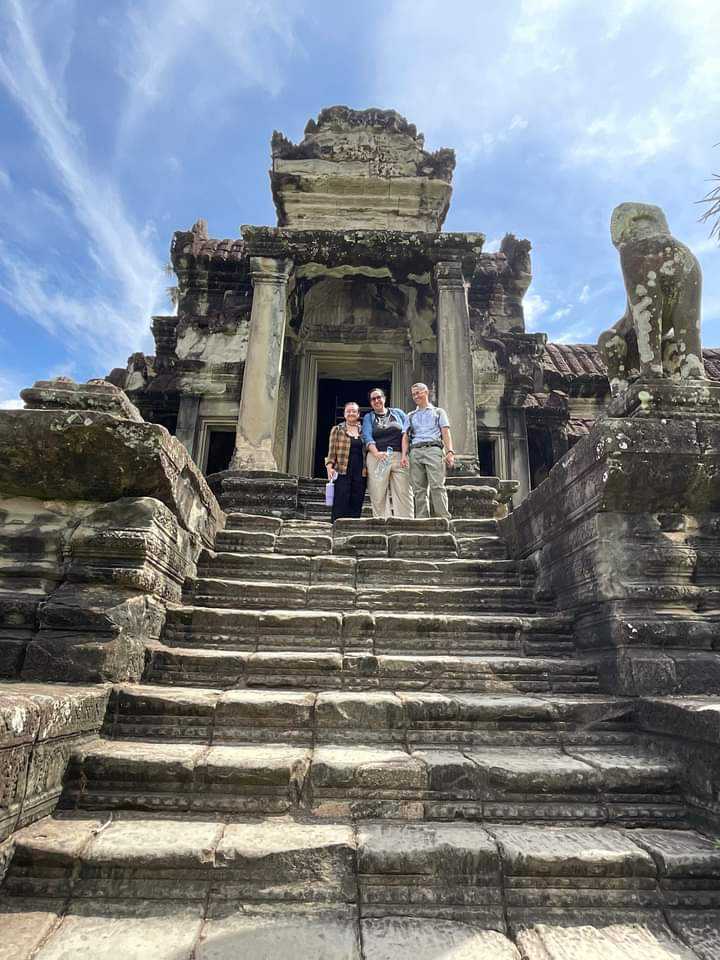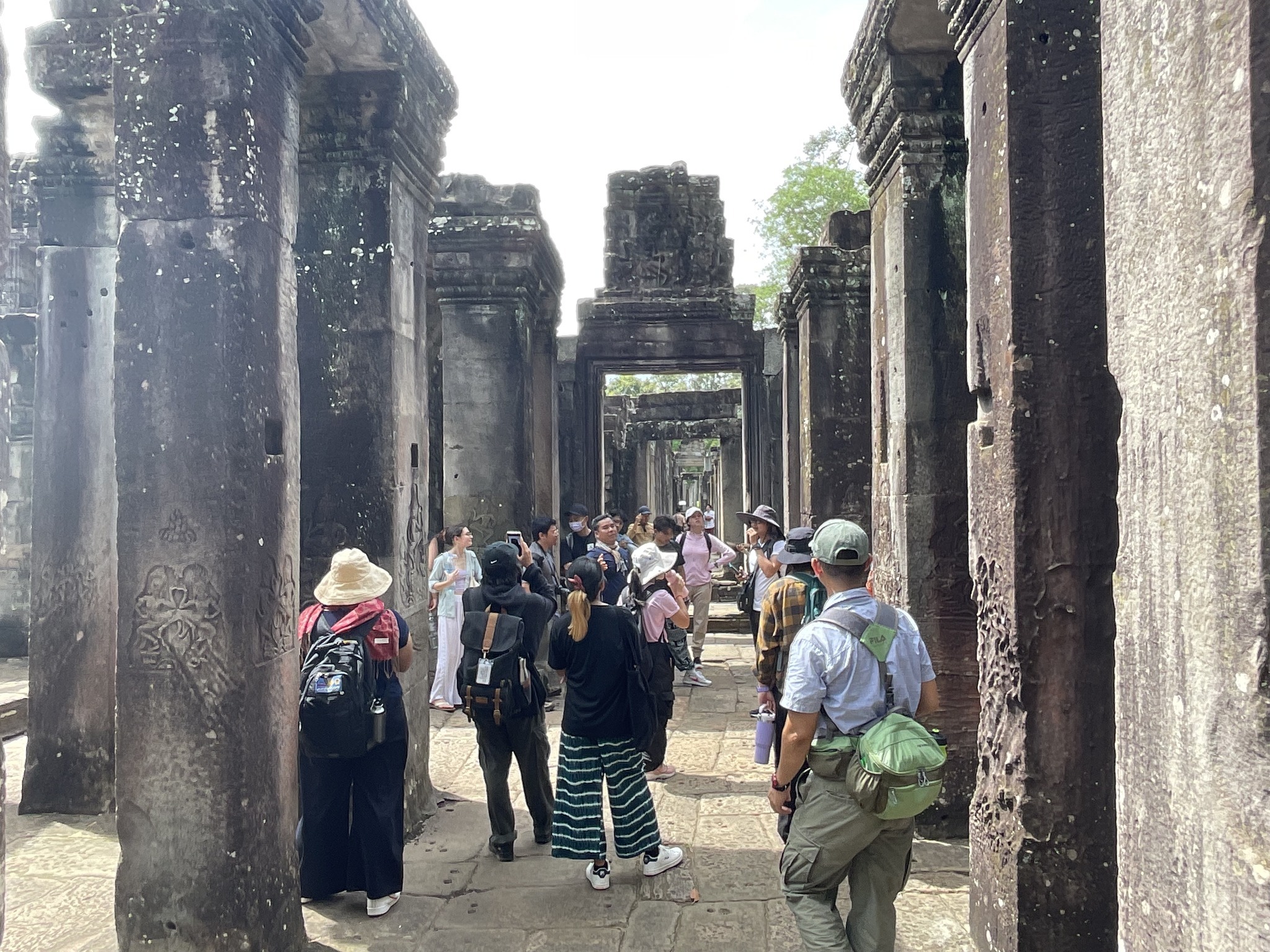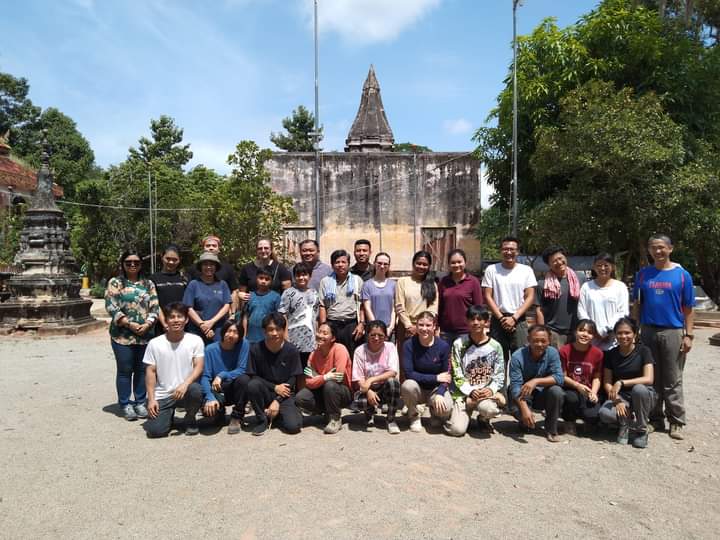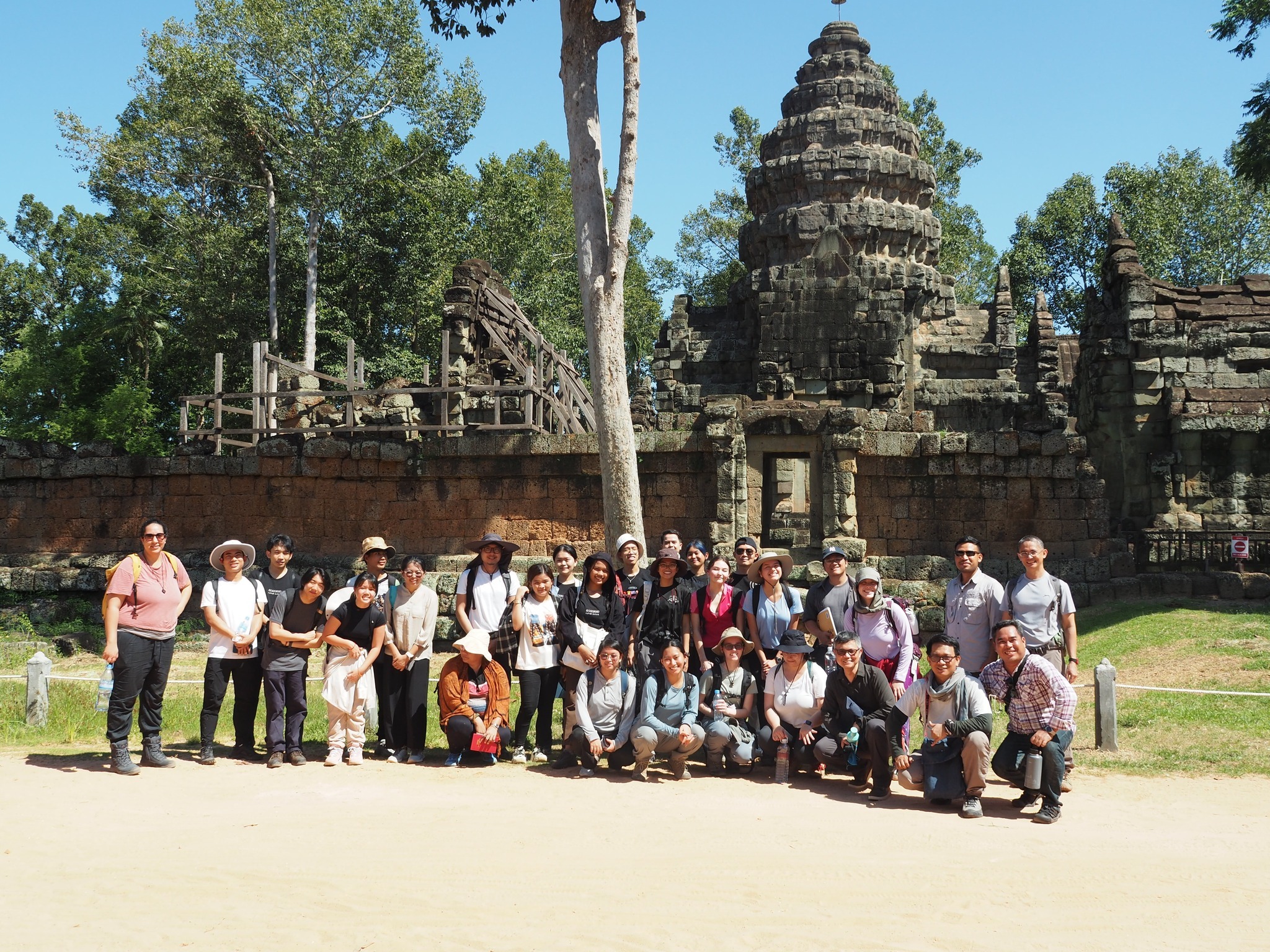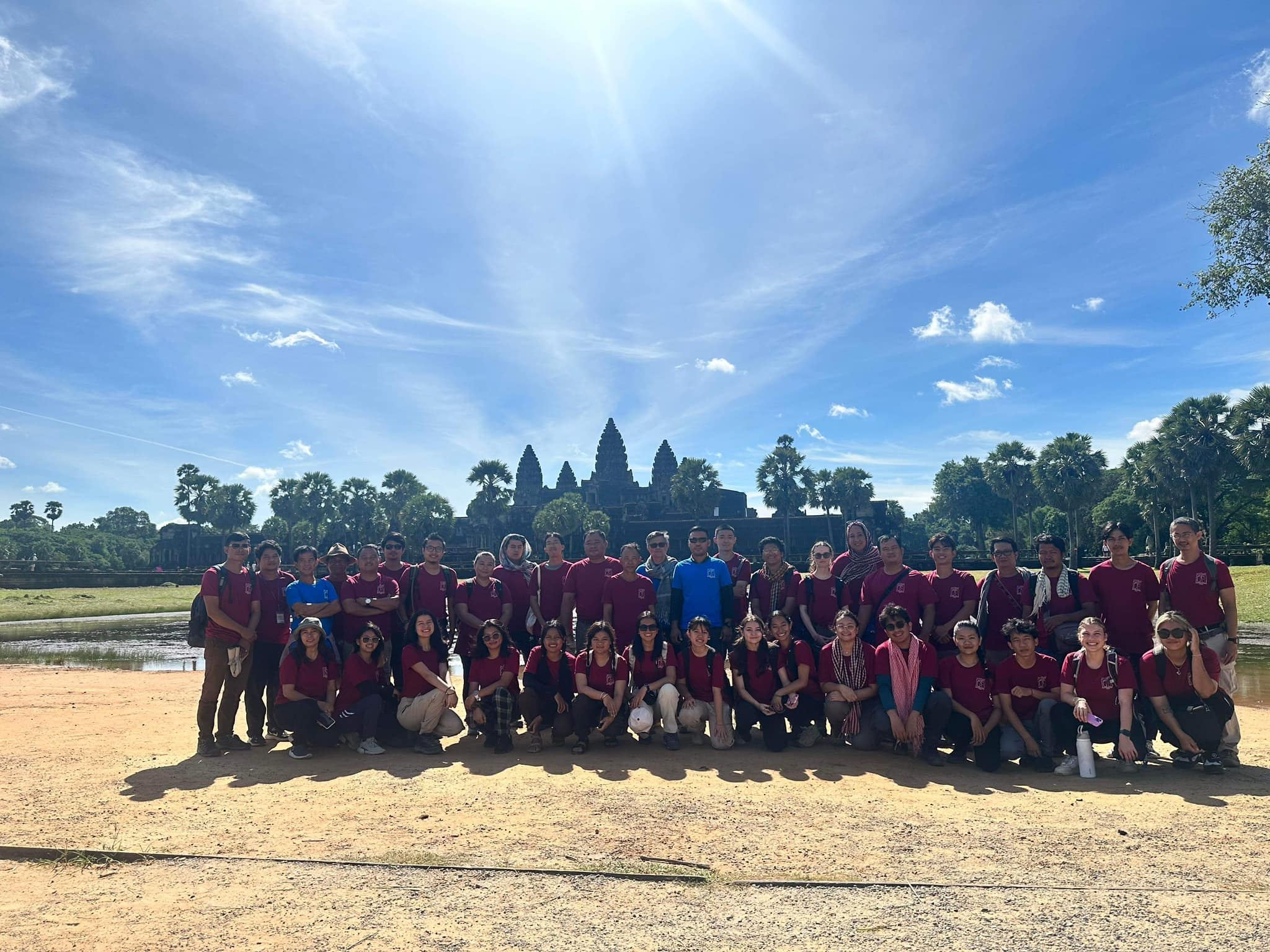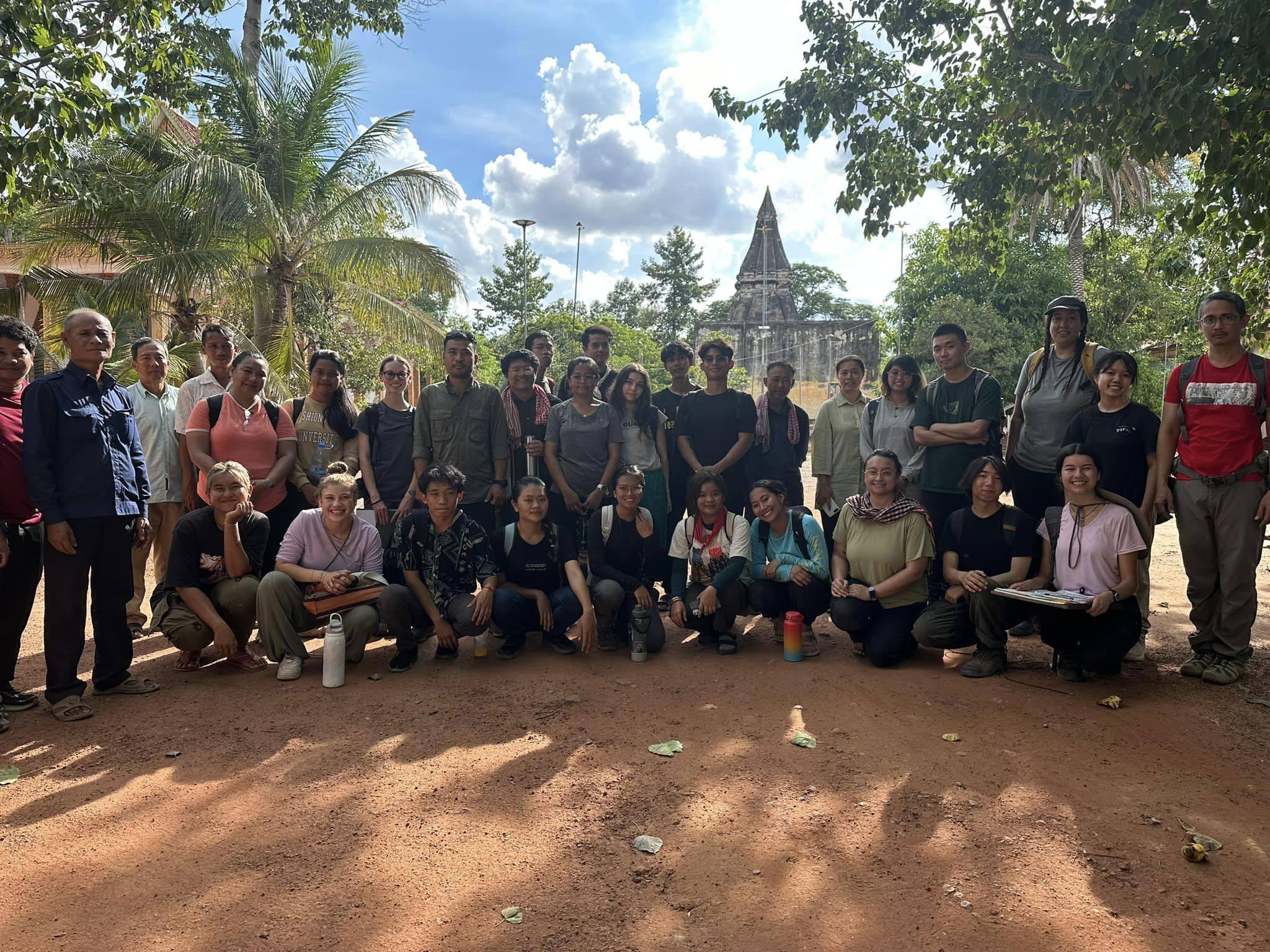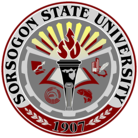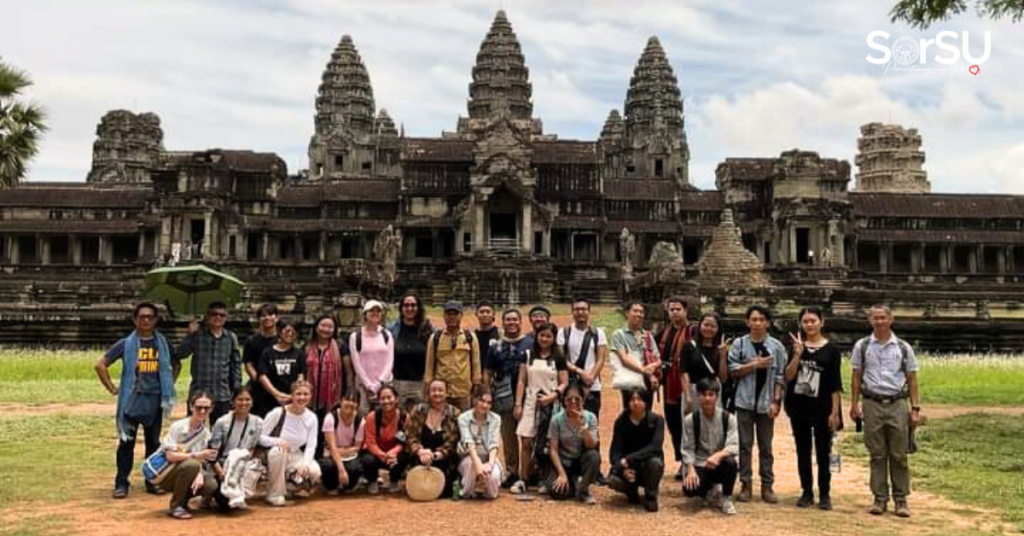A consortium composed of the University of California – Los Angeles, University of Hawaii at Manoa, and University of Washington, the Program for Early Modern Southeast Asia (PEMSEA) is an interdisciplinary research initiative that aims to expand and revitalize Southeast Asian studies by offering new directions for integrated scholarship through student training, workshops, and logistical support. To realize this objective, the program conducted the 2023 PEMSEA Archaeological Field School from June 22 to July 15 in Krong Siem Reap, Kingdom of Cambodia.
This year’s research venture was made possible through the University of Hawaii’s Phum Archaeological Project in collaboration with the APSARA National Authority of Cambodia. The three-week endeavor consisted of fieldwork at Wat Chedei and Angkor Wat; site surveys in multiple locations in Siem Reap; field trips to the National Museum, Angkor Wat, and Angkor Thom; and lectures on Angkor ceramics, conservation, and community engagement. In addition, the participants also learned geophysical survey, archaeological excavation techniques, mapping, artifact processing, and LIDAR drone use.
The current project was organized and directed by Principal Investigator Dr. Stephen Acabado (UCLA Professor of Anthropology, Director of the Center for Southeast Asian Studies, and IDP Chair at the Cotsen Institute of Archaeology); field director Dr. Piphal Heng (Affiliate Faculty, University of Hawaii at Manoa; UCLA Cotsen Institute of Archaeology Post-Doctoral Fellow); and Dr. Madeleine Yakal (UCLA PEMSEA Coordinator). On the ground, Khmer archaeology instructors and UCLA graduate students expertly guided the participants during the actual fieldwork.
The sole representative of SorSU in this international undertaking, Dr. Michael John A. Jamora, actively participated in the recently concluded field school – along with more than 30 faculty and students from the US, Cambodia, Thailand, Taiwan and the Philippines. As invited participants, Dr. Jamora and his companions’ expenses during the project’s entire duration – international airfare, lodging, and meals in Cambodia – were supported by PEMSEA.
Although SorSU does not have an archaeology program or faculty who are trained in this specific discipline, involvement in this event is an auspicious opportunity to initiate institutional linkage and to engage in future collaborations with UCLA and other international organizations. Moreover, technical skills derived from the training may supplement the university’s research capabilities; enhance academic content of history, social sciences and cultural subjects by acquiring and/or developing primary source materials; and, more important, provide faculty with potential prospects for long-term engagement in future trainings, collaborative research, and even advanced graduate education through this program. (MJAJ)
